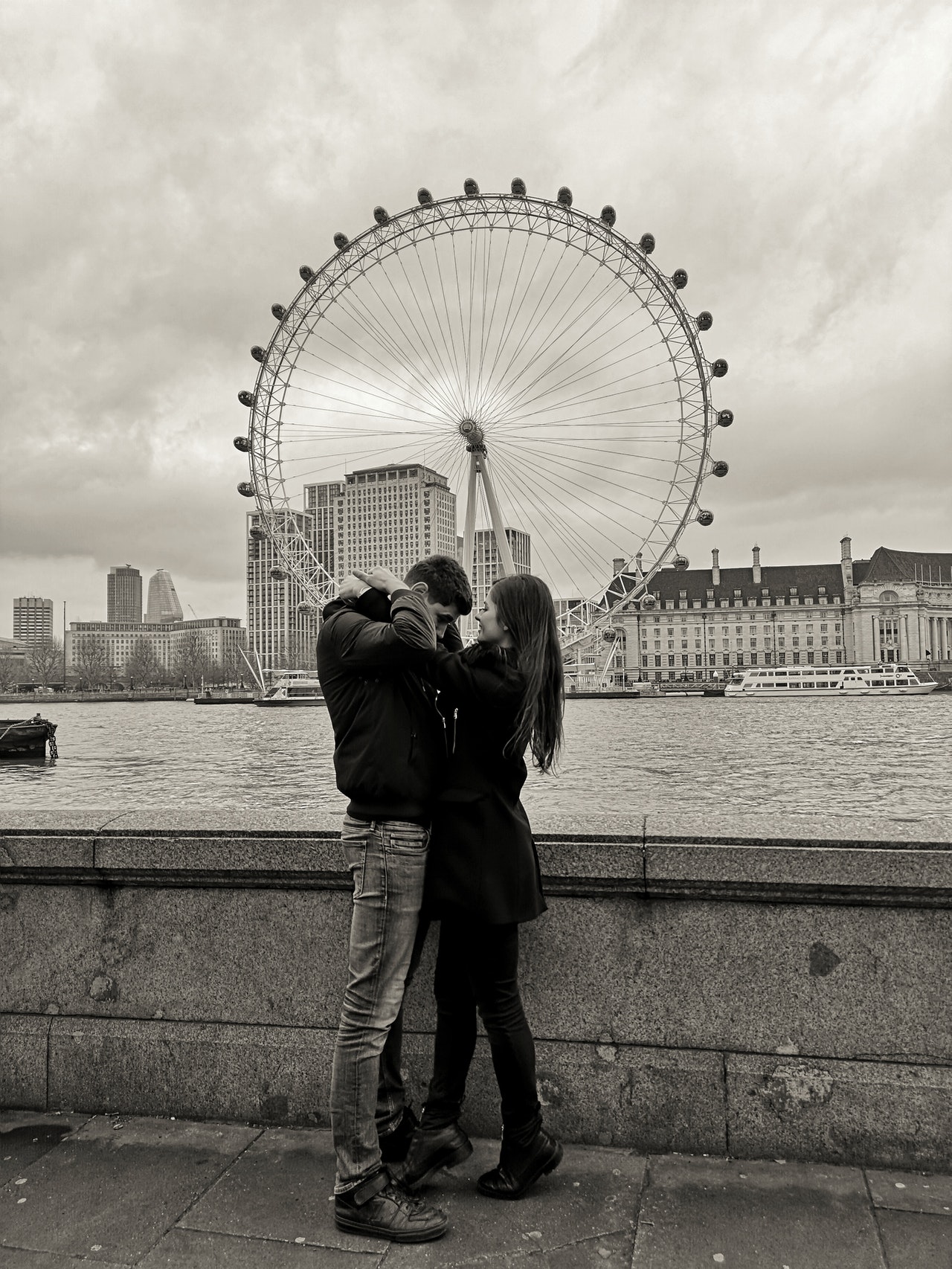I grew up in a time when putting ourselves last was considered a virtue.
I was taught to give away my last piece of gum or candy, to offer my seat on the bus to anyone older than me.
When I put the needs of others before my own, I was rewarded. I was a good girl. On a deeper and unconscious level, I learned to forego my own feelings in favor of making others feel better so that they could then be able to take care of me—a vicious cycle.
I became a scanner. I monitored other people’s moods, their facial expressions, the heaviness of their footfalls on the floorboards, the weight of silence between conversations. Based on what my Spidey senses reported, I then altered my behavior to make sure my needs for love and safety would be met. My childhood was my inauguration into caretaking.
My name is Judy and I am a codependent in recovery. I have no problem labelling myself in this way. It helps me stay aware of the unhealthy ways I operate in relationships with others and myself.
Since diving into the 12 steps of Codependents Anonymous seven months ago, the lessons have been coming fast and furious. It’s as if the universe exhaled a sigh of relief and said, “Finally! Let’s get this show on the road.”
There are many codependent patterns, but the one I identify with most is caretaking. Ugh! She’s a doozy, that one.
Although this behavior was unconscious and necessary in childhood, it became problematic in adulthood. In every romantic relationship I can recall, I made it my business to learn all about my partner. I became Sherlock Holmes in uncovering what made them tick. Why were they addicted to substances? What childhood wounds were they numbing? What set them off? What cheered them up? How could I be everything to them? What made me indispensable?
I took care of them so well that I forgot that I was my own person responsible for taking care of my own needs.
In recovery from codependency, I am discovering that caretaking is not a noble act. It is an act that stems from a deep fear of abandonment.
When in the throws of codependent behavior, my mind goes something like this:
I sense my partner is experiencing emotional turmoil. Did I do something to bring that on? How can I fix it?
His facial expression looks like he’s unhappy with me. Did I say something to upset him? Should I apologize?
His voice is terse. Is he angry with me? I feel scared. Maybe I should leave.
He is withdrawing. Oh no! How can I get him to pay attention to me?
He’s hiding something from me. How can I find out what it is? Should I check his phone? His journal?
I pull out my bag of tricks and attempt to smooth things over. I ask probing questions about how he is feeling. What may be wrong? I offer advice that sounds loving on the surface, but is my desperate attempt to get him to change so that I can feel safe in the relationship again.
Newsflash to all my dear fellow codependents: other people’s feelings are none of our business! What they choose to do or not do is their business. Trying to fix them is not our job.
What I am about to write next may be hard to accept: caretaking is the opposite of caregiving. It is not an act of altruism. It is an act of selfishness.
I recently came across the following comparison between caretaking and caregiving, written by Elizabeth Kupferman, a professional counsellor. It shed a beam of light on the differences between the two and has been a tremendous help in pointing out where I may be operating out of codependency rather than love.
>> Caretaking feels stressful, exhausting, and frustrating. Caregiving feels right and feels like love. It reenergizes and inspires you.
>> Caretaking crosses boundaries. Caregiving honors them.
>> Caretaking takes from the recipient or gives with strings attached; caregiving gives freely.
>> Caretakers don’t practice self-care because they mistakenly believe it is a selfish act.
>> Caregivers practice self-care unabashedly because they know that keeping themselves happy enables them to be of service to others.
>> Caretakers worry; caregivers take action and solve problems.
>> Caretakers think they know what’s best for others; caregivers only know what’s best for themselves.
>> Caretakers don’t trust others’ abilities to care for themselves, caregivers trust others enough to allow them to activate their own inner guidance and problem-solving capabilities.
>> Caretaking creates anxiety and/or depression in the caretaker. Caregiving decreases anxiety and/or depression in the caregiver.
>> Caretakers tend to attract needy people. Caregivers tend to attract healthy people. (Hint: we tend to attract people who are slightly above or below our own level of mental health).
>> Caretakers tend to be judgmental; caregivers don’t see the logic in judging others and practice a “live and let live attitude.”
>> Caretakers start fixing when a problem arises for someone else; caregivers empathize fully, letting the other person know they are not alone and lovingly asks, “What are you going to do about that.”
>> Caretakers start fixing when a problem arises; caregivers respectfully wait to be asked to help.
>> Caretakers tend to be dramatic in their caretaking and focus on the problem; caregivers can create dramatic results by focusing on the solutions.
>> Caretakers use the word “You” a lot and Caregivers say “I” more.
When I focus on my partner for extended periods of time, I begin to lose sense of what is true for me. I no longer know what my needs are. I lose connection with the most important person—my inner child. Caretaking is kryptonite to my self-esteem and to my ability to love myself.
The following are symptoms that show up in my life when I am operating from codependency in my romantic relationship.
The first thought in the morning is of the other person. What are they doing? What are they thinking? Do they still love me? Concerns turn into obsessions that consume me and wreak havoc in my daily life.
I let go of most or even all of my self-care routines. Instead, I make myself available physically and emotionally to the other person. This leads to increased feelings of anxiety and spiritual exhaustion.
I isolate myself from my friends. There is an underlying sense of shame that I am in this sh*tty emotional space again. I avoid asking for help because I am embarrassed to be seen this way.
The conversations I have with my partner are mostly one-sided, focused on how they are doing and feeling. My senses are sharp, hypervigilant. I step around on eggshells, covertly assessing the situations to deem them either safe or unsafe.
The most damaging symptom is the loss of courage to show up fully myself in the relationship and an inability to speak my truth.
In the past, I would be unaware that I was losing myself. I’d spend weeks trying to caretake and fix the other person’s behavior so that I would feel okay. This was crazy-making, exhausting, and ineffective. Eventually, the only thing I would see as a solution was to end the relationship and begin my search for a new one. I knew no other way.
In recovery, I do my best to not resort to all or nothing thinking. When I notice I am caretaking, I speak gently to myself. There is no point in beating myself up.
I visualize myself and my partner on a theatre stage. The spotlight is shining on my beloved while I stand in the dark shadows. I ask the tech person (Higher Power) to please shine the spotlight on me. They do. I get quiet and examine every part of me. There I am: my legs, feet, torso, arms, and hands. I touch my heart. I focus on my breathing. I get grounded and apologize to my inner child for abandoning her. I tell her how much I love her and that I am sorry for forgetting to take care of her first.
I then look over to where my beloved stood before in the spotlight and let them know that I am still there, on the stage with them. They are not alone. I tell them I love them and trust that they know how to best take care of themselves.
The value of keeping the light of love on myself is immeasurable.
It illuminates where I end and the other begins. It teaches me that although I may deeply love another, they are not responsible for my happiness, nor I for theirs. I take their power away when I do for them what they are capable of doing for themselves.
When we each use our power to take care of our own selves, we stand in the relationship arena as true equals—supporting each other, encouraging each other, and growing as human beings.
This is true freedom.
~









Read 24 comments and reply